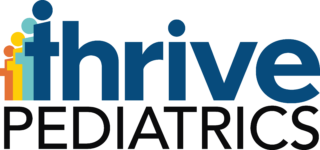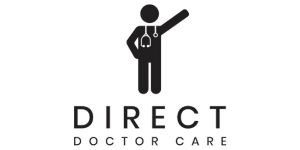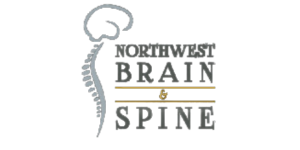
The Medical Management Podcast_Q&A.Recruiting and Interviewing: Audio automatically transcribed by Sonix
The Medical Management Podcast_Q&A.Recruiting and Interviewing: this mp3 audio file was automatically transcribed by Sonix with the best speech-to-text algorithms. This transcript may contain errors.
Jay Holmes:
Welcome to the Medical Management Podcast. A podcast focused on helping you level up your practice. Through interviews with some of the most successful leaders in the industry, we help uncover resources, tools, and ideas to help you level up your practice. Thanks for tuning in and we hope you enjoy today's program.
Jesse Arnoldson:
Hello and welcome to the Medical Management Podcast. I'm your host Jesse Arnoldson. This week, we're taking a moment to compile some of our most frequently asked questions that MedMan receives through email, social media, and while we're also on-site and clinics. We'll focus on two main topics: recruitment and interviews for our first episode, and people management for our second episode of the week. So let's jump right in. We're going to talk about some of the most common questions that we get asked whenever we are interfacing with some of the practices that we work with. We also get a lot of these questions over social media. So let's start with how do I prevent getting no-showed so much by candidates? This is a real problem. I would always set appointments for these interviews, and by the time I get through maybe 10 of them, 30, 40 percent of them just won't even show up. And it would be a real waste of my day because I had set aside time in my schedule to do that. For me, I started to add things to the very beginning of the interview process that would decrease the problem if I did get no-showed. Like, for example, I shorten the interview time to about 10 minutes rather than setting aside half an hour or an hour. And I felt OK doing that because I also shifted it from being an in-person interview to a phone interview, to begin with. I always start with a phone interview now because when it was in-person, I felt like I had to extend the amount of time to justify them coming in because, yeah, if they're taking time out of their schedule, they're driving over to the clinic, they're meeting with you, you feel like you got to give at least a half an hour, if not an hour to that person. And for 80 percent of the people I'm talking to, the very first time I know within a couple of minutes whether I want to keep talking to them. And so it helped in two ways. One, if somebody no-shows me for a phone interview, then no harm, no foul. It was ten minutes, I can move on with the rest of my day, and not a lot of loss there. Also, I don't spend, it feels like I feel bad saying if I don't waste half an hour to an hour figuring out whether I want to talk to this person for reals. And so it's a double benefit by putting something there in the beginning of the process that's a lot shorter, a lot easier to do.
Jesse Arnoldson:
Next question, do I really need to do references? I'm not sure what good they do. This is a very common feeling and I have felt myself quite a few times in the past. I think that references serve a good role. Let's not overplay it. Most of the time, what you get from the person through the interview per the rest of the interview process is really what's going to drive most of it. But references do a couple of things. One there, that last chance to identify any red flags or anything else that you'd like to dig into deeper. And so if you do the references a little bit earlier in the process, it may give you a chance as you're interviewing the candidate to dive into some of the things that come up. Two, references also serve as a, what I want to call a test of whether they follow through on something. So if you interview them and then you ask them for references and you're specific about what you're looking for, if they do it, it shows good follow-through. If they follow your instructions well enough, then it shows attention to detail. And then three, I have found that people who serve as references quite often are very honest. And so it will give you a chance to perhaps avoid making a mistake higher if you do touch chat with these people. Now, I think that as a follow-up to this question, one of the reasons that I don't like to do references or haven't in the past is because I used to do them over the phone and it would take forever to finally get somebody on or you play phone tag. I would say that over the phone they feel a little bit more pressure to maybe talk, maybe not be as honest or thoughtful in their answers that they always seem to be overly positive. So I switched to email and I would send out one email, a little bit generic, and I would blind copy all of the people I needed to send for references just to make it a little bit easier on myself. I focused a lot on what kind of questions I want to ask, and most of them had to do with how did this person do with their supervisor? How do they, tell me about what kind of role they play inside of a team, that kind of stuff. And people responded a lot better to that and with a lot more thought behind their answers. Once I send the email out, I let the candidate know and ask them to reach out to the references to just kind of hurry up the process a little bit, because sometimes it'll be a week or two weeks. And also I'll get an email back for a reference that I've already moved beyond. And so timeliness is important there. I also ask for four references in the hope that I can get a hold of three. And so I don't necessarily need to get a hold of all four of them. But if I can get to three and see some consistent themes there and feel good about it, then I can move on.
Jesse Arnoldson:
All right, next question, I can't get very many applicants, how do I get more people to apply? This is something that a lot of clinics struggle with, is that you put out a position in the candidate pool is so anemic that it feels like you have to make a desperate, almost a desperation hire because there just isn't anybody else applying. I would say that that there's a couple of things. One, there are some things that you can do to increase the pool size. And two, there are some things that have to do with how much time you're allowing yourself to hire, you know, will dictate how big of a candidate pool you get. So let's talk about the first thing. What can you do to increase that pool of candidates? I've, in the past, been able to do better if I will post to our social media, not necessarily for them to apply over, let's say, Facebook, but I'll redirect them to the position I have on indeed. And sometimes that can help a lot of people who know you locally will pass along a link to a friend if they see it on social media. Those people that follow you and know you and know what kind of people you are looking for that can help if you have a strong social media following. The second thing is, is that I believe on some of these recruitment sites, you can actually go out and try and find candidates that haven't necessarily applied for your position, but maybe for a little bit of extra money, you can go out and find somebody that hasn't applied but meets your standards and send them a message and try and reach out that way. Otherwise, getting creative early on, being proactive about it before you ever have a need, you know, maybe having a position that is consistently out there or regularly out there, well, I should say, you know, not just when you're in that two-week holy cow, we got to hire somebody, period, but maybe you have an ongoing position out there so that you can watch out for just the best people. Another way is to reach out to the different schools, whether they are medical assistance, schools, nurses' schools, business schools, anything like that. I think it's important to have those relationships established before a need is there. And that can be really helpful. The last thing that I think is important when thinking about this is to give yourself more time. Jay, my co-host, and I have talked about this before. If you only have let's say you're on the hunt for a house. You only have a week where you, you've only given yourself a week to look for houses, you're only going to get a week's worth of houses to look for, a week of those houses that are currently on the market. And same thing with candidates. If you post a position and you're only giving yourself four to seven days to get a pool of candidates together, that can be an issue. So I think making sure that you have enough time to make the hire, two weeks is not enough time to put a position out there interview and find the right person. I just don't think it is. Sometimes the need is there. But if you can find any way to give yourself more time, that's usually your best chance at solving that problem.
Jesse Arnoldson:
Next on our list is a little bit longer, I feel like an interview is nothing close enough to get to know someone I keep regretting hires three or four months down the road. Is there anything better I can do to not feel like I'm hiring blind? That's understandable. I think that for lots of us, we probably are doing the interviews on our own and we're pressured to find that person. There's a whole lot of stress that goes behind it because the doctors are screaming and the staff are screaming and this person just gave two weeks notice if we're lucky, and there's a lot of pain there. And so desperation and not a super extensive hiring process can lead to you bringing on people that later you regret because you just didn't get to know them enough. I think that the solution to that is like to the previous question time is huge, finding ways to buy yourself time, whether it's cross-training, having a temporary solution, having somebody who can work a few extra days, putting just a little bit more on the current team to buy yourself time is a huge part of this. The second thing is, is that you need to develop a hire-and-interview process that cuts this person from four to six different points of view. And that means different settings, whether you're you're getting to know them over the phone and then one-on-one and then in a group or on a clinic tour or outside the clinic or whatever it may be, to be able to get to see this person in a whole bunch of different lights is important. Having different people participate in the interview process and have different things that they're looking for is huge. So I think that I completely agree that it is so hard to know for sure whether you're hiring a good person or not in an interview process, the likelihood improves if you give yourself time and you give yourself multiple lenses through which you can look at this person either through setting or different people. So that's how I would approach that and try and decrease my amount of regret down the road.
Jesse Arnoldson:
Let's do one more question. This one says, do you have a favorite interview style or some favorite interview questions? Recently I've been thinking about this a little bit more because at MedMan, I had a shift in my responsibilities and now I'm a little bit more involved in our hiring process and being a part of bringing in other administrators and corporate team. And so I've realized that I really like what we call the top grading interview. And this is something we repurposed from the book Who, which is a fantastic book, by the way, if you want to really dive deep into your recruitment and interviewing skills. But the top-rating interview gives you a chance to take somebody's resume and chronologically backwards use the same three to five questions through as many positions as you can get through. I have three that I really like. I want to know, you know, tell me a little bit about the person that you reported directly to in that position. OK, tell me a little bit about the people you spent the most time with on your team. Hey, what made you think about leaving that employer or that, or moving on from that position? And I asked those three questions over and over and over again. And usually, I think, in a good interview, get through three positions. But what I'm looking for are trends, themes, anything that will stick out. And it really is a fantastic way of getting people to be honest, maybe unwittingly honest people will let you know how they felt about their supervisor. You know, hey, I really like this person because and the because it's always really important because they were super flexible with my schedule. Maybe that's a little bit of a red flag. I really like my manager because they saw me as a person and turned into really good mentors. OK, I can get with that. That's something that I like to, this person appreciates mentorship. I feel like that's important. We can do well together. Things will come out about the team, I left there because I hated all the drama. OK, that's a little bit of a red flag, definitely, if it comes up multiple times. But this is one of my favorite interviews, not because it's exciting, not because it's full of really awesome questions. It's because and I think we've all heard Jay say this on the on the podcast before the studies are showing more and more that it's not about the most creative questions you can ask, it's about can you ask the most consistent questions and repeat those? And so it gets a little bit monotonous, a little boring, but it helps so much as I'm comparing candidates and I'm looking for specific things. To spice things up a little bit, I do follow it up with a couple of questions, you know, I want to know somebody's, a very specific example of their best trainer that they've had. And what does that look like? Because I feel like that initial training is it can really break the relationship if they feel like the training was subpar to their expectations. And so a lot of times I'll catch whether somebody's expectations are going to match what I know we can do training-wise or not. And if we can't, then maybe that's not the right fit. Also, I'm looking for some positivity. There is, that's one of MedMan values, you know, and a lot of people can get down on the training they've received. And so it helps me gauge their positivity. And the last one has more to do with wanting to know about a specific example of somebody's confrontation where they were probably the problem or at least part of the problem with a coworker. And it gives me a chance to hear them either be vulnerable or not be vulnerable, bash the other person, show that they actually learn something, really admit a mistake. Like I'm just looking for so many things in these questions. That's the interview that I personally like to carry out the most if I am part of a hiring process, I like to be a part of the top grading interview.
Jesse Arnoldson:
OK, I think that that brings us to the end of it. I hope that some of these questions are ones that maybe you've asked yourself as well and so the topic is relevant. For those that maybe it stirred other questions or felt like there are other areas that you wanted me to hit, please hit us up on our social media or you can email me at Jesse, J E S S E @MedMan.com. We're going to put one more episode out this week where we do some Q&A about people management, just general people management. Until next time, this is Jesse at the Medical Management Podcast. Take care!
Jay Holmes:
Thanks for tuning in to the Medical Management Podcast. We hope you enjoyed today's featured guest. For the show notes, transcripts, resources, and everything else MedMan does to help you level up, be sure to visit us at MedMan.com.
Sonix is the world’s most advanced automated transcription, translation, and subtitling platform. Fast, accurate, and affordable.
Automatically convert your mp3 files to text (txt file), Microsoft Word (docx file), and SubRip Subtitle (srt file) in minutes.
Sonix has many features that you'd love including transcribe multiple languages, world-class support, automated subtitles, powerful integrations and APIs, and easily transcribe your Zoom meetings. Try Sonix for free today.
Episode Summary
The first episode of this week is about the most frequent inquiries MedMan gets about recruitment and interviews.
Jesse covers x questions. From rearranging the interview process when there’s a no-show; to the relevance of references, Jesse talks about his experience dealing with these situations. Regarding incrementing the number of applicants, his advice is to give yourself more time to gather more applicants. Finally, Jesse gave quite a thought to what his favorite interview questions and processes are.
Join host Jesse Arnoldson while he answers them! This episode will for sure give you tools to have in hand in your next recruitment and interview process.
Key Take-Aways
-
- Try to change in-person interviews to phone interviews or virtual calls.
-
- References serve two purposes: first, one last chance to identify red flags; two, demonstrate specific skills in certain areas.
-
- To increase the number of applicants to a position, send the information to social media, not for people to apply directly but to redirect them to the position’s landing page.
-
- Reach out to people in the schools that pertain to the industry you work in to find candidates.
-
- Give yourself more time to get a bigger pool of applicants for a position.
-
- Have other people you work with be part of the interview process so you, as the decision-maker, can get different points of view.
Resources
-
- Check out Who, The A method for hiring book ,here.
-
- If you have new questions and want Jesse to answer them email him at ,Jesse@MedMan.com























